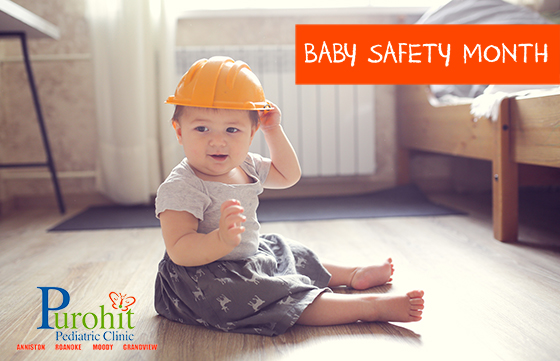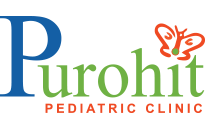Baby Safety Month
SEPTEMBER 17, 2019

September is Baby Safety Month. The Juvenile Products Manufacturers Association (JPMA) founded Baby Safety Month in 1983. It was originally known as “Expectant Mother’s Day”, but over the years it has grown into a full month of information, education, and focus on infant safety.
This year, the JPMA is encouraging parents to fill out the registration card whenever they buy a baby product. By filling out and returning this card, manufacturers are able to contact you if there is a safety concern or recall associated with the product. This is the easiest and quickest way for you to be notified if you should stop using a product that poses a safety risk to your child. If you have purchased one of the following products, you should have received a product registration card in the box with the product (it is required by law).
- Bassinets and Cradles
- Bedside Sleepers
- Booster Seats
- Carriages and Strollers
- Changing Tables
- Children’s Chairs and Stools
- Cribs
- Expansion Gates and Expandable Enclosures
- Hand-held Infant Carriers
- High Chairs
- Infant Bath Tubs
- Infant Bouncer Seats
- Infant Inclined Sleep Products
- Infant Swings
- Infant Frame Child Carrier
- Portable Bed Rails
- Portable Hook-on Chairs
- Sling Carriers
- Soft Infant and Toddler Carriers
- Stationary Activity Centers
- Play Yards
It’s A Fact!
Most injuries can be prevented! Parents and caregivers play a huge role in protecting children from injuries.
Choosing the right baby products for your family can be overwhelming, but safety should never be compromised.
Product Safety
Selecting JPMA Certified products is a good first step toward raising a happy, healthy baby. It’s also very important that you use these products correctly every time. Juvenile products are only to be used for the purpose intended by the manufacturer. Most juvenile products do have a long life, but they should be safety-checked frequently. Always remember juvenile products are not a substitute for parental supervision.
- Avoid distractions, and never leave children unattended during bath time.
- When changing or bathing a baby, be sure everything you need, such as diapers, wipes, shampoo, and toys are all within easy reach.
- Use straps and harnesses on products when available, each and every time.
- Do not place your baby in an infant seat, swing, bouncer, or car seat on top of a table, countertop, or any other elevated surface.
- When using activity centers, mats, or bouncers, keep them away from stairs, doors, windows, plants, lamps, televisions, fireplaces, heaters, or tables.
- When a baby can crawl, install gates on doorways and all stairways. If they try to climb the gate, teach them how to use the stairs.
- Follow the manufacturer’s instructions, warning labels, and recommendations for age and weight requirements.
Water Safety
Drowning is the leading cause of unintentional death for children ages one to four.
- Never leave a child unattended in or near water.
- Install proper barriers, covers, and alarms on and around your pool and/or spa.
- Teach children how to swim, and learn CPR.
Drownings also happen in the home.
- Never leave a baby alone, or with young siblings, in a bathtub, and always keep your baby within arm’s reach. Children can drown quickly and silently, even in small amounts of water.
- Baby-proof your toilet, and make sure any containers with liquids are emptied immediately after use.
Cord Safety
Cords can pose strangulation hazards to children, whether they are connected to window blinds, baby monitors, or lamps.
- Keep all cords up and out of reach of children.
- Use cordless window coverings in all homes where children live or visit.
- Remember to keep cribs, beds, and furniture at least three feet away from all cords that the child may reach while inside the crib or climbing on the furniture.
Back to Sleep and Sleep Space
Babies spend most of their time sleeping. Follow these tips to keep them safe while sleeping.
- Always place your baby on their back to sleep. This helps prevent suffocation and reduces the risk of SIDS.
- Keep pillows, quilts, comforters, and cushions OUT of your baby’s crib, bassinet or play yard.
- Be sure to check that your crib, play-yard, and bassinet meet current Consumer and Product Safety Commission standards.
- Use a firm, tight-fitting mattress.
Baby Wearing
The Consumer and Product Safety Commission urges parents of infants younger than four months of age, premature or low birth-weight babies, and babies with colds and respiratory problems to use extra caution and consult their pediatricians about using infant sling carriers. If you are using a sling:
- Make sure the baby’s face is not covered and is visible at all times to the sling’s wearer.
- Be vigilant about frequently checking your child while in a sling. Make sure nothing is blocking the nose or mouth and that your baby’s chin is not close to their chest.
- Avoid nursing your baby in a sling. If you must nurse using a sling, change positions after feeding so the baby’s head is facing up and is clear of the sling and the mother’s body.
